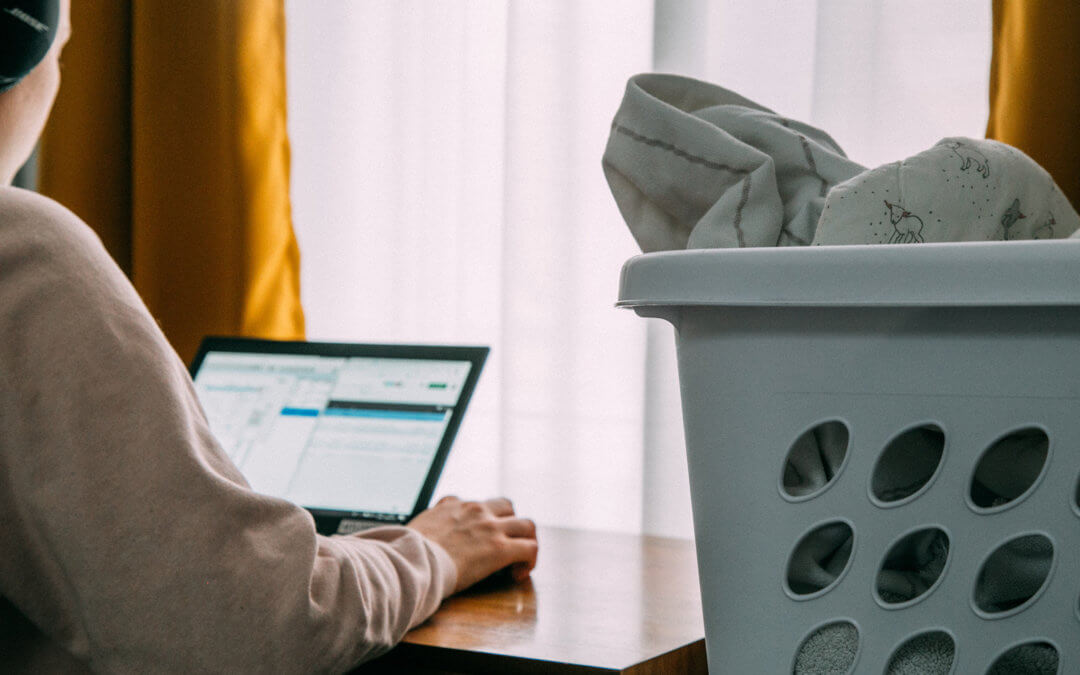We all miss a number of things at the moment, but I’ve been missing my car. That rusted out, dented in, squeaky wipers, 2001 hatchback Ford Focus (aka silver fox named Hank the Tank) has long been a safe space for this counselor to drive home after a long day of work. Once upon a time when work was a physical place, I would turn off the lights, exit my office, close the door behind me, push the key fob to unlock, sit on the coffee-stained velour seating, smell my forest breeze car freshener and start the engine for a leisurely drive home with some tunes to slowly let the thoughts of the day drift away with the scenery.
Today, I sit in my home office/cave, surrounded by various piles of laundry intermixed with study materials, attempt to get the light right on my webcam, write emails, send texts, and clean around the house in between it all. Little hatchback Hank sits in a garage, forlornly waiting for its owner to brave a trip to Meijer or just get so stir crazy that a drive around the neighborhood is better than another impossible puzzle or baked good destined for the deep freezer.
While there are certain benefits to a work from home situation, the challenge is that we can’t leave work behind. It sits in and around our screens, inches away from our personal lives. The children beckon, the kitchen awaits. And the temptation to get ahead, to make another call, to think about that unfinished project is harder to relinquish than ever before. So how do we leave work worries behind, whether we’re a teacher trying to teach from home, a nurse after a long shift in the ER, a financial advisor constantly checking the stock market, or a parent who continues to worry they’re missing something in the news that could affect the family’s future?
Enter: Exit Rituals
Exit rituals can be the starting point toward creating some boundaries in your life to assist with leaving work at “work” so that we can be truly home. If we let them, the stressors of work can so easily move through our paper-thin defenses, creeping in and stealing our refreshment during free time. In the same way that we would power down a computer after a long day at work, lock our cabinets, rinse that coffee cup, and organize our space for tomorrow, we still need those mindful and physical activities to tell our brains that something is about to change, even if the environment has not.
Here are some examples:
- At the end of your work time, take a few minutes to imagine what you did before work from home happened at the end of your workday in specific detail. Mind-map it out. The mere memory of that experience automatically puts your brain in a down-shift.
- Imagine your work being kept in a container, or a closet. Describe that container/closet. What is it made of? How do you place your work in the vessel? How does it close? Can you lock it? Where do you keep the keys? Practice placing it in the safe spot and tucking it away for the next time you actually need to pull it out again.
- Boss, co-worker or family member driving you crazy from beyond your home? Imagine them sitting on your couch and tell them they are not welcome here at this moment. Watch them walk out the front door and shut it behind them.
- Work problem, email or to-do list keeping you up at night? Keep a post-it note stack, write it down, and place it in your work space, on your computer, etc. Tell yourself it is now at work and will be dealt with at a specific, scheduled time.
- Try to keep work clothes for work times. Schedule in breaks and do what you can for similar work times each day. Healthy routine is at the heart of a work/life balance.
- As your “shift” ends, turn off the work notifications, social media notifications, whatever notifications, or better yet, just deactivate all those beeps and boops. Stay in the moment, plan out the next five minutes, and enjoy your life.
For my hospital friends and essential worker bees…
…Even though you still work away from home, how do you make sure that you walk away from the job without carrying the heaviness of the day into the warmth of your home? Perhaps that means slowing the process of shifting out of your day; take time to note the closing of your hospital locker, pause to remember the highs and lows of the day, and as you shut that door, tell yourself that this day is done, and it is now time for rest, family time, and whatever else you are anticipating for rejuvenation. If the thoughts persist, take a few minutes to handwrite the workday in a journal. Close that journal and keep it there.
Finding a work/life balance is far from easy, and heads up, you won’t always win the battle. But it’s amazing what a bit of shifting down and creating an exit ritual can do to help you enjoy each moment at home that much more. Experiment with it, and share with others what works for you!
In the meantime, Hank, I still miss you. Save some tunes for me.

